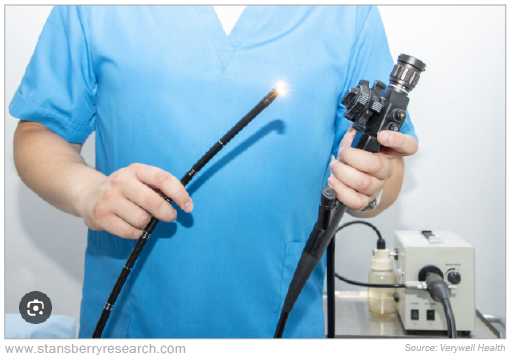Don't Play Hooky With Your Health
Around one in three Americans over age 50 are playing a dangerous game of hooky...
They're skipping their colonoscopy screenings.
If you're among them, you're putting your health at risk...
As Dr. Charles Friel – a colorectal surgeon – says...
The sad thing about most cancers is that we can cure almost all cancers if we can find them early enough.
According to the American Cancer Society, one in 23 men and one in 25 women in the U.S. will get colorectal cancer at some point in their life.
Colorectal cancer is an incredibly slow-moving disease, so folks have a while before it really becomes threatening. It causes problems like rectal bleeding and constipation. And for folks who don't detect it, colorectal cancer is one of the most common fatal cancers in the U.S.
But you have a defense against this deadly threat...
And that's to get colonoscopies regularly.
A colonoscopy is an examination of your colon (also called your large intestine) and rectum. After four to eight hours of unpleasant preparation the night before (which we'll get into later), your gastroenterologist will have a specialist place you under general anesthesia.
Once you're asleep, doctors use air or carbon dioxide gas to inflate your colon and get a thorough visual. They'll insert a flexible tube into your rectum – as wide as a finger – that has a camera on the end. The camera reveals any polyps (meaning small clumps of cells) growing on the intestinal walls, along with swollen tissue and any other signs of cancer. The tool looks like this...

Typically, a colonoscopy will last 20 minutes to an hour]. If any polyps turn up during the exam, the doctor removes them. A biopsy will reveal whether they're harmless (benign) or cancerous (malignant).
After the procedure, you will likely feel bloated or gassy. That's from the air they used... As the air escapes, you'll start to feel better.
You may also feel groggy and constipated for a few days following the procedure.
While a colonoscopy is no fun, take comfort that it's rare for anything to go wrong during the procedure.
When you turn 45, you're due for your first colonoscopy... Then you should continue to get one every 10 years until at least age 75.
Folks under 45 could consider a colonoscopy if they have a family history of colon cancer or some other risk factor. But because few younger people develop colon cancer, doctors rarely recommend that they go through a screening.
And starting after age 75, talk to your doctor about whether it's worth putting your body through a colonoscopy. Depending on your life expectancy, other health problems, and prior screening history, not all elderly patients would benefit from trying to treat colon cancer even if they did discover it.
This advice comes from the USPSTF. I'm a big fan of this group, which flags dubious medical tests. But it found such strong evidence of this colonoscopy schedule, it awards the procedure its highest grade of A for folks aged 50 to 75 (and B, the second highest, for ages 45 to 49).
Before your colonoscopy, typically the night before your procedure, you'll have to "prep" your colon... by drinking a laxative that empties your bowels so the doctor can get a clear view.
This also means you'll spend about four to eight hours rushing to the toilet every 30 minutes.
I won't pretend this sounds like fun. But you can take some steps to make your prep (and the aftermath) less painful.
(I'll share a few tips here, but you can get the rest in my flagship newsletter. If you're not a subscriber, try Retirement Millionaire out right here.)
Bidet or bust.
Use your bidet to avoid abrading your skin from too much wiping. If you don't have a bidet, consider a squeeze bottle like this one with an angled tip that works well for women and men.
Look for the bottom of the toilet.
You'll know you've achieved bowel-prep success once you can see the bottom of the toilet bowl – without any "sediment" whatsoever – after a bowel movement. It's OK to see a slight yellowish tinge to the water, too. The main thing is that you don't want to see any solids.
Give yourself an extra hour the next morning.
If possible, set your alarm so you have some extra time before your appointment (on top of getting ready and commuting over). You may find yourself needing to make a few more trips to the bathroom. That's because mornings are when your gastrocolic reflex is super active. It gets triggered when your stomach stretches from eating breakfast (or in this case, perhaps some water or juice).
Sure, bowel prep might have that giant "ick" factor. But you don't want to mess it up. That's because more than 99% of colon cancers start with, you guessed it, a polyp.
If you're not already up to date on your screening schedule, get your next colonoscopy on the books today...
The sooner you know about a problem, the easier it will be to fix it. And our tips will make the process less unpleasant.
What We're Reading...
- Something different: How chain restaurants use smells to entice us.
Here's to our health, wealth, and a great retirement,
Dr. David Eifrig and the Health & Wealth Bulletin Research Team
October 1, 2024

